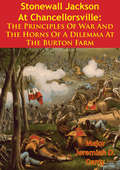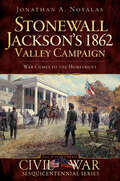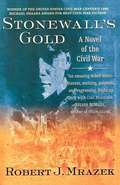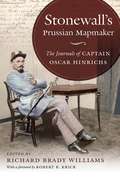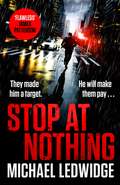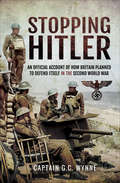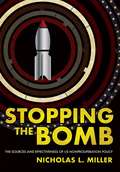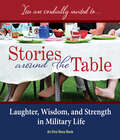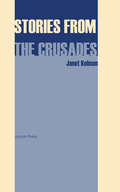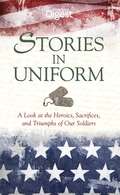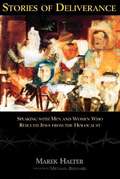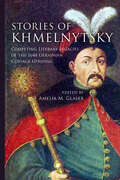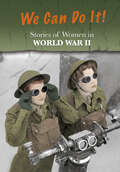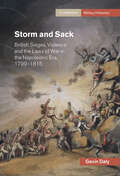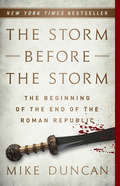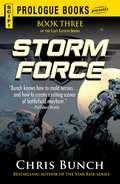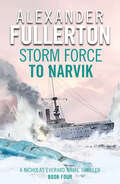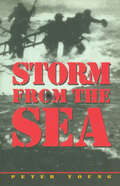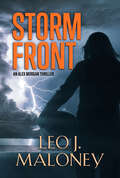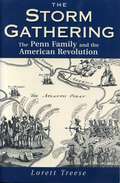- Table View
- List View
Stonewall Jackson At Chancellorsville: The Principles Of War And The Horns Of A Dilemma At The Burton Farm
by Major Jeremiah D. CantyThe Battle of Chancellorsville in May 1863 and particularly the Flank March and Attack under Jackson served as a metaphor for the operational victories the South gained while at the same time signifying why the South could not hope to win strategically based on a policy of accepting greater levels of risk than its Northern opponent.In the spring of 1863 the Federal cause had just recovered from the disasters of the previous year with a resurgent army and leadership...General Hooker headed south to try his hand against the nemeses of the North; General Lee and General Jackson. Initially, Hooker was very successful and essentially "turned" Lee's position at Fredericksburg...Lee, facing defeat in detail as he attempted to hold off two possible Federal thrusts, was galvanized into action that seemed to defy the military principles of the day. Dividing his already heavily outnumbered army Lee attacked the eastern most elements of Hooker's army that was south of the river. The unexpected thrust unnerved Hooker who withdrew back into the Wilderness to fall back on defensive positions in anticipation of further Confederate attacks. Lee and Jackson realized they had no choice but to attack the Federals and decided on yet another division of the army, in further defiance the principles of war. Even though Hooker correctly appreciated Lee's intent he failed to take adequate precautions against a Confederate move from the west. In spite of being observed on several occasions the Second Corps of "Stonewall" Jackson arrived on the flank of the Federal army and delivered one of the most crushing blows of the war. Lee and Jackson's ability to absorb levels of risk that were not feasible for Hooker to accept gave them a distinct advantage over the Federal commander and thus acted as a significant force multiplier.
Stonewall Jackson's 1862 Valley Campaign: War Comes to the Homefront (Civil War Sesquicentennial Series)
by Jonathan A NoyalasVirginia's Shenandoah Valley was known as the "Breadbasket of the Confederacy" due to its ample harvests and transportation centers, its role as an avenue of invasion into the North and its capacity to serve as a diversionary theater of war. The region became a magnet for both Union and Confederate armies during the Civil War, and nearly half of the thirteen major battles fought in the valley occurred as part of General Thomas J. "Stonewall" Jackson's 1862 Valley Campaign. Civil War historian Jonathan A. Noyalas examines Jackson's Valley Campaign and how those victories brought hope to an infant Confederate nation, transformed the lives of the Shenandoah Valley's civilians and emerged as Stonewall Jackson's defining moment.
Stonewall's Gold: A Novel
by Robert J. MrazekA ripping adventure yarn, a moving coming-of-age tale, and a fascinating portrait of the difficulty of life in the Appalachians at the end of the Civil War, Stonewall's Gold is a compelling novel that is certain to appeal to teacher and student alike.
Stonewall's Prussian Mapmaker
by Richard Brady Williams Robert K. KrickPrussian-born cartographer Oscar Hinrichs was a key member of Stonewall Jackson's staff, collaborated on maps with Jedediah Hotchkiss, and worked alongside such prominent Confederate leaders as Joe Johnston, Richard H. Anderson, and Jubal Early. After being smuggled along the Rebel Secret Line in southern Maryland by John Surratt Sr., his wife Mary, and other Confederate sympathizers, Hinrichs saw action in key campaigns from the Shenandoah Valley and Antietam to Gettysburg, Petersburg, and Appomattox. After the Confederate surrender, Hinrichs was arrested alongside his friend Henry Kyd Douglas and imprisoned under suspicion of having played a role in the Booth conspiracy, though the charges were later dropped.Hinrichs's detailed wartime journals, published here for the first time, shed new light on mapmaking as a tool of war, illuminate Stonewall Jackson's notoriously superior strategic and tactical use of terrain, and offer unique perspectives on the lives of common soldiers, staff officers, and commanders in Lee's army. Impressively comprehensive, Hinrichs's writings constitute a valuable and revelatory primary source from the Civil War era.
Stop at a Winner
by R. F. DelderfieldA humorous tale of the Pascoe family's tribulations and Pedlar Padcoe's journey in to the midst of the action of World War Two.
Stop At Nothing: the explosive new thriller James Patterson calls 'flawless' (Michael Gannon Ser. #1)
by Michael LedwidgeTHEY MADE HIM A TARGET. HE'LL MAKE THEM PAY.'The writing is sharp and the action doesn't let up. Stop at Nothing is flawless.' JAMES PATTERSON, world's bestselling author.'A gloriously pulpy, no-nonsense adventure...Ledwidge knows how to keep readers' adrenaline pumping.' THE TIMES When a private jet crashes into the Caribbean sea, diving instructor Michael Gannon is the only person on the scene. Finding six dead men and a suitcase full of cash and diamonds, Gannon assumes he's the beneficiary of a drug deal gone wrong.However, it seems one of the passengers was the Director of the FBI - despite the official story that he died of natural causes in Italy. Suddenly pursued by a shadowy cabal of the world's most powerful and dangerous men, Gannon will only survive if he unravels a terrifying conspiracy.But those determined to kill him will learn that Gannon's past holds its own deadly secrets...and the hunters soon become the prey.From the number one bestselling co-author of James Patterson's Michael Bennett series, this pulse-racing and page-turning thriller will grip fans of Lee Child, David Baldacci and Gregg Hurwitz.Why readers can't put this book down:'Michael Ledwidge is a pro at writing pacey, in-the-moment prose...I was HOOKED.' ***** Goodreads review'You will be on the edge of your seat flipping pages as fast you can.' ***** Goodreads review'A non-stop adventure guaranteed to entertain.' ***** Goodreads review
Stop At Nothing: the explosive new thriller James Patterson calls 'flawless'
by Michael LedwidgeTHEY MADE HIM A TARGET. HE'LL MAKE THEM PAY.'FLAWLESS...Michael Ledwidge has the gift.' James Patterson, world's bestselling author.When a private jet crashes into the Caribbean sea, diving instructor Michael Gannon is the only person on the scene. Finding six dead men and a suitcase full of cash and diamonds, Gannon assumes he's the beneficiary of a drug deal gone wrong.However, it seems one of the passengers was the Director of the FBI - despite the official story that he died of natural causes in Italy. Suddenly pursued by a shadowy cabal of the world's most powerful and dangerous men, Gannon will only survive if he unravels a terrifying conspiracy.But those determined to kill him will learn that Gannon's past holds its own deadly secrets...and the hunters soon become the prey.One man will stop at nothing to survive in this pulse-racing thriller that will grip fans of Lee Child, David Baldacci, James Patterson and Gregg Hurwitz.(P)2020 HarperAudio
Stopping Hitler: An Official Account of How Britain Planned to Defend Itself in the Second World War
by Captain G.C. Wynne&“[A] unique account of British threat responses to potential German conflict . . . Strongly recommended&” (Firetrench). In the immediate aftermath of the First World War, it was expected that international disputes could be settled by arbitration through the creation of the League of Nations. Consequently, the British government concluded that there would not be another war in the foreseeable future and therefore the country&’s armed forces could be correspondingly scaled back. The rise of Nazism in Germany in the 1930s, however, prompted politicians and military leaders to contemplate the frightening prospect of another global conflict. The Chiefs of Staff of the three services were instructed to bring Britain&’s armed forces up to a standard where they could resist a revitalized and powerful aggressor, and to put in place plans for the defense of the country. When that war became a reality, the Chiefs of Staff then had to devise schemes to prevent a German invasion and, as the war progressed, to counter the bombers of the Luftwaffe and the flying bombs and rockets that followed. Reproduced here in its entirety is an official account drawn up by Capt. G. C. Wynne of the Historical Section, Cabinet Office in 1948. Arranged in four parts, corresponding to the four different threats that developed with the changing situations of the war, it details the various plans made for home defense between 1939 and 1945. &“A detailed study of the preparations and actual measures taken to prevent invasion during the Second World War.&” —Britain at War
Stopping the Bomb: The Sources and Effectiveness of US Nonproliferation Policy (Cornell Studies in Security Affairs)
by Nicholas L. MillerStopping the Bomb examines the historical development and effectiveness of American efforts to prevent the spread of nuclear weapons. Nicholas L. Miller offers here a novel theory that argues changes in American nonproliferation policy are the keys to understanding the nuclear landscape from the 1960s onward. The Chinese and Indian nuclear tests in the 1960s and 1970s forced the US government, Miller contends, to pay new and considerable attention to the idea of nonproliferation and to reexamine its foreign policies. Stopping the Bomb explores the role of the United States in combating the spread of nuclear weapons, an area often ignored to date. He explains why these changes occurred and how effective US policies have been in preventing countries from seeking and acquiring nuclear weapons. Miller's findings highlight the relatively rapid move from a permissive approach toward allies acquiring nuclear weapons to a more universal nonproliferation policy no matter whether friend or foe. Four in-depth case studies of US nonproliferation policy—toward Taiwan, Pakistan, Iran, and France—elucidate how the United States can compel countries to reverse ongoing nuclear weapons programs. Miller's findings in Stopping the Bomb have important implications for the continued study of nuclear proliferation, US nonproliferation policy, and beyond.
Stories Around the Table: Laughter, Wisdom, And Strength In Military Life
by Terri Barnes“Opening it up to any random story will make you feel humbled, grateful, and best of all, not alone.” —Anette Radonski, Military Spouse JD Network Conversations are the heart of a gathering among friends. In Stories Around the Table: Laughter, Wisdom, and Strength in Military Life, military spouses, parents, children, and service members gather together to laugh, cry, lend perspective, and share personal stories from their military life experience. From poignant to practical, tragic to humorous, these candid conversations from friends old and new shed heartfelt insight on many aspects of military life: ~ friendship, depression, romance in military marriage, caring for children with special needs in a mobile lifestyle, renewing relationships after deployment, career challenges for spouses, changing schools, post-traumatic stress, faith, grief, and so much more ~ “…will touch your heart.” —Phil Paleologos, WBSM “Awesome…like being with friends.” —Leon Francis, KFYR “…you will find yourself laughing, remembering, or grabbing a tissue and pausing to reflect on something that grabs at your heart and won’t let go…” —Kathleen M. Rodgers, Military Spouse Book Review “Marvelous…really important book.” —Frank Gaffney, Secure Freedom Radio “You will derive strength from it.” —Jim Bohannon, The Jim Bohannon Show Foreword Reviews INDIEFAB Book of the Year Awards – Silver Midwest Book Awards – Finalist
Stories from the Crusades
by Janet KelmanOnce upon a time there was an ugly little boy called Peter, who lived in his father's castle in France. He was a restless boy, and liked always to do or to hear something new. His home was very quiet, for his father was a great fighter, and was often away at the wars for months at a time.
Stories in Uniform
by Editors of Reader's DigestStories in Uniform is a chronological retrospective of the best military pieces Reader's Digest has run; pieces that will make you weep, make your heart sing, inspire you, enrage you, and make you laugh. Beginning in World War I and continuing though to the war in Iraq, readers will follow soldiers into the trenches, peer in on emergency surgery taking place in the depths of the ocean, watch heroes carry the bodies of fallen brethren, trail Eisenhower for the three days leading up to D-Day, and be inspired as men and women rise above and beyond normal human limits to preserve our rights and save their friends.Stories include:* A moving memorial to D-Day* A tribute to one of the first African-Americans to serve as a Naval Officer* A pilot rescued after his F-16 is shot down* A soldier returns to the front after losing his foot in action* An American soldier who takes a big risk to save a dying Afghan girlThis book gives a complete perspective on the hell that is war, the love that grows from camaraderie, the pride from accomplishing the impossible, the humor that springs from the military bureaucracy, and more.
Stories of Deliverance: Speaking with Men and Women Who Rescued Jews from the Holocaust
by Marek Halter Michael BernardWhen Marek Halter was five years old, he and his family fled from the Warsaw Ghetto with the help of two Polish Catholics. Fifty-three years later, now a distinguished French writer and social commentator, Halter returned to Warsaw, and from there went on a quest across Europe, seeking out and interviewing gentiles who had risked their own lives to save the lives of Jews in Nazi-occupied Europe." "From his research with Holocaust survivors, Halter developed a list of "the Just" - those who, according to Jewish tradition, must exist in each generation in order to save the world from destruction. Halter's encounters with these heroes and with those they saved are described in a series of little stories, interspersed with his own memories and observations. These "just" men and women range from obscure peasants to such notables as former West German chancellor Willy Brandt, the post-Communist leader of Lithuania, and the present Pope. The material of this book also forms the subject of a film directed by Halter, Tzedek: The Righteous.
Stories of Khmelnytsky: Competing Literary Legacies of the 1648 Ukrainian Cossack Uprising
by Amelia M. GlaserThis volume examines drastically different narratives, from Ukrainian, Jewish, Russian, and Polish literature, that have sought to animate, deify, and vilify the seventeenth-century Cossack. Khmelnytsky's legacy, either as nation builder or as antagonist, has inhibited inter-ethnic and political rapprochement at key moments throughout history and, as we see in recent conflicts, continues to affect Ukrainian, Jewish, Polish, and Russian national identity.
Stories of Women in World War II: We Can Do It! (Women's Stories From History Ser.)
by Andrew LangleyMore than 75 million people fought in World War II – nearly all of them men. Who was going to produce the weapons and the food, and do countless other vital jobs? The answer was women. Millions stepped forward to take on work they had rarely done before, such as fighting fires, ploughing fields and cracking codes. These are the stories of four trailblazers who achieved amazing things in difficult circumstances: Anne-Marie Walters became a secret agent in constant danger of being captured, working behind enemy lines in France. A painting of Ruby Loftus operating machinery became an iconic image of women’s contribution to the war effort. By the time Nancy Love was in her early twenties, she was one of America’s leading woman pilots. When “Red” Harrington and her fellow nurses were captured by the Japanese, they set up a hospital to look after the thousands of other prisoners of war. Many of the rights women have today are down to their actions. They helped change society's image of women forever.
Storm and Sack: British Sieges, Violence and the Laws of War in the Napoleonic Era, 1799–1815 (Cambridge Military Histories)
by Gavin DalyDuring the Peninsular War, Wellington's army stormed and sacked three French-held Spanish towns: Ciudad Rodrigo (1812), Badajoz (1812) and San Sebastian (1813). Storm and Sack is the first major study of British soldiers' violence and restraint towards enemy combatants and civilians in the siege warfare of the Napoleonic era. Using soldiers' letters, diaries and memoirs, Gavin Daly compares and contrasts military practices and attitudes across British sieges spanning three continents, from the Peninsular War in Spain to India and South America. He focuses on siege rituals and laws of war, and uncovering the cultural and emotional history of the storm and sack of towns. This book challenges conventional understandings of the place and nature of sieges in the Napoleonic Wars. It encourages a rethinking of the notorious reputations of the British sacks of this period and their place within the long-term history of customary laws of war and siege violence. Daly reveals a multifaceted story not only of rage, enmity, plunder and atrocity but also of mercy, honour, humanity and moral outrage.
The Storm Before the Storm: The Beginning of the End of the Roman Republic
by Mike DuncanThe creator of the award-winning podcast series The History of Rome and Revolutions brings to life the bloody battles, political machinations, and human drama that set the stage for the fall of the Roman Republic. The Roman Republic was one of the most remarkable achievements in the history of civilization. Beginning as a small city-state in central Italy, Rome gradually expanded into a wider world filled with petty tyrants, barbarian chieftains, and despotic kings. Through the centuries, Rome's model of cooperative and participatory government remained remarkably durable and unmatched in the history of the ancient world. In 146 BC, Rome finally emerged as the strongest power in the Mediterranean. But the very success of the Republic proved to be its undoing. The republican system was unable to cope with the vast empire Rome now ruled: rising economic inequality disrupted traditional ways of life, endemic social and ethnic prejudice led to clashes over citizenship and voting rights, and rampant corruption and ruthless ambition sparked violent political clashes that cracked the once indestructible foundations of the Republic. Chronicling the years 146-78 BC, The Storm Before the Storm dives headlong into the first generation to face this treacherous new political environment. Abandoning the ancient principles of their forbearers, men like Marius, Sulla, and the Gracchi brothers set dangerous new precedents that would start the Republic on the road to destruction and provide a stark warning about what can happen to a civilization that has lost its way.
Storm Flight
by Mark BerentCourt Bannister is removed from the field of action, only to reenter it in a doomed bomber.... Toby Parker questions his own gut instincts, until he faces the ultimate test from which there is no turning back.... And Special Forces Colonel Wolf Lochert parachutes into Hanoi for POW evidence that could effect the war -- if only he can make it out in one piece...
Storm Force
by Chris BunchAmid swirling allegiances and changing loyalties at the outer reaches of the Confederation empire, the Lost Legion struggles to keep the peace and prevent the planets from falling to a ruthless dictator. Protector Alena Redruth will stop at nothing to add the dual system of Larix and Kura to his holdings.And the Legion's intelligence officer, Njangu Yoshitaro, will let nothing get in his way of infiltrating the system's upper echelons of government. Within the delicately played game of spying, there are plots within plots within plots . . .
Storm Force: Book Three of the Last Legion Series
by Chris BunchAmid swirling allegiances and changing loyalties at the outer reaches of the Confederation empire, the Lost Legion struggles to keep the peace and prevent the planets from falling to a ruthless dictator. Protector Alena Redruth will stop at nothing to add the dual system of Larix and Kura to his holdings.And the Legion’s intelligence officer, Njangu Yoshitaro, will let nothing get in his way of infiltrating the system’s upper echelons of government. Within the delicately played game of spying, there are plots within plots within plots . . .
Storm Force
by Chris BunchAmid swirling allegiances and changing loyalties at the outer reaches of the Confederation empire, the Lost Legion struggles to keep the peace and prevent the planets from falling to a ruthless dictator. Protector Alena Redruth will stop at nothing to add the dual system of Larix and Kura to his holdings. And the Legion's intelligence officer, Njangu Yoshitaro, will let nothing get in his way of infiltrating the system's upper echelons of government. Within the delicately played game of spying, there are plots within plots within plots . . .
Storm Force to Narvik: The Nicholas Everard World War Ii Saga Book 1 (Nicholas Everard Naval Thrillers #1)
by Alexander FullertonEverard is returns in a new global conflict.British Captain Nick Everard's destroyer is crippled by Nazi gunfire in the German invasion of Norway. Nothing seems able to stop the advance across Europe and the Royal Navy is in a tight situation.Desperately attempting to repair his ship hidden in a remote fjord, Everard is unaware that his son is part of an Allied naval flotilla converging on Norway, and the two are fated to join forces in a deadly arctic battle.Moving into a new and explosive phase of Everard’s career, Storm Force to Narvik takes us deep into the action and danger of the Second World War.
Storm from the Sea
by Peter YoungThis classic account is a dynamic and vivid record of what it was like to fight with Britain's Commandos across wartime. Peter Young, who joined 3 Commando in June 1940 and went into action with them in July of that year, sets down a spirited tale of adventure, heroism and ever-present danger in this valuable narrative of an elite force at war. Storm from the Sea is the commandos' story of war and describes a number of key Commando raids against targets in occupied Europe. The first amphibious operation of note was against the Lofoten islands and a second raid against Vaagso quickly followed. Despite a setback at Dieppe, the commandos continued to annoy the Germans with hit and run attacks and Peter Young's men participated in the invasion of Sicily and in operations in Italy until being recalled for D-Day. Hard fighting in Normandy followed and the author recalls the daily skirmishes and ambushes which, for the commandos, so typified the liberation of France. After a brief period attached to 3rd Commando Brigade in Burma, Peter Young ended his war preparing for operations in Malaya. The conflict had been a punishing adventure but, as he testifies in Storm from the Sea, his Army Commandos came through with a tremendous reputation for daring and stealth.
Storm Front (An Alex Morgan Thriller #2)
by Leo J. MaloneyThe second installment in acclaimed Black-Ops thriller author Leo J. Maloney&’s spin-off series featuring Alex Morgan, daughter of Zeta operative Dan Morgan. STORM FRONT Ares, an insidious challenger to the Zeta group, is sowing conflict around the world, orchestrating an explosive endgame. Indentifying the next target as a cruise ship on the Coral Sea, Zeta sends undercover operatives Alex Morgan and Alicia Schmitt to avert catastrophe. Infiltrating the crew and passengers is easy for the skilled agents—but also for the fortified and highly trained extremists, who topple security and gain control of the ship. The attackers&’ demands: inconceivable. Their threats: immediate. As a massive storm bears down off the Australian coast, Alex and Alicia are outnumbered, outgunned, and out to sea. In full chaos mode, Alex shores up her last defenses, unaware that someone close to her could shift the odds in her favor—or against her. Ares has every advantage in this operation, but they have overlooked one key thing. Never underestimate a Zeta agent . . . especially one whose last name is Morgan. Praise for Leo J. Maloney and His Novels &“Utterly compelling.&” —Jeffery Deaver &“Fine writing and real insider knowledge.&” —Lee Child &“Rings with authenticity.&” —John Gilstrap &“A ripping story!&” —Meg Gardiner &“The new master of the modern spy game.&”—Mark Sullivan
The Storm Gathering: The Penn Family and the American Revolution (Keystone Books)
by Lorett TreeseTreese's book provides a popular history of Pennsylvania during the Revolutionary period from the vantage point of the heirs of William Penn.Most Pennsylvanians are familiar with the story of William Penn and the founding of Pennsylvania in 1681 as a haven for religious dissenters. But few may know what became of Penn's enterprise (the "proprietorship") in the years after his death in 1718. And fewer still may realize that Penn's descendants played an important, and increasingly unpopular, role in the coming of the American Revolution to Pennsylvania. The Storm Gathering, based on Penn family correspondence and other contemporary records, tells this fascinating story, focusing primarily on Thomas and John Penn, two of the last members of the Penn family to figure significantly in Pennsylvania's affairs before the colonies declared independence in 1776. Lorett Treese begins her story with Thomas Penn, William Penn's son who eventually became chief proprietor. Thomas groomed his nephew John (sometimes called "indolent") to be governor of the colony. When John took up his duties in 1763, at the end of the French and Indian War, the Penn proprietorship faced serious problems in managing Pennsylvania. The sheer size of the colony made it difficult for the Penns to collect their rents, and settlers moving westward clashed with Indians on the frontier, threatening the peaceful relationship that William Penn had established with native peoples. A stubborn legislature resisted Penn family control at nearly every turn, and Ben Franklin led an effort to thwart the Penns and make Pennsylvania a royal colony.According to Treese, these domestic problems diverted the Penns' attention from the growing movement in America toward democracy and independence. But by 1768, after the British parliament had passed the Townshend Act taxing the American colonies, John Penn and his uncle Thomas began to realize the magnitude of their troubles, referring to the growing rift between America and Britain as "the Storm gathering." Events began to overtake the Penns by 1775. In that year Thomas Penn died, and the bloodshed at Lexington and Concord brought war closer. In Pennsylvania, John Penn wrote that "The people here are forming themselves into companies & are daily exercising in order to be prepared for the worst." When the Second Continental Congress met in Philadelphia that summer, John knew that the end of Penn leadership was near. "Our form of government still continues," he wrote, "but I think it cannot last long . . . ." In 1776, as radical sentiment grew, the colonies declared independence from England, and Pennsylvania rewrote its constitution, divesting the Penn family of governing powers and making the colony a commonwealth. When war broke out, radical patriots forced John Penn into exile, and he eventually retired to his country home where he waited out the war. Treese concludes this engaging story with the end of the Revolution and its aftermath. While Pennsylvanians began the difficult work of reconstructing their government, the Penns attempted to salvage their personal fortunes. Many former officers of the Penn establishment participated again in government, but Penn family members were pushed outside of American government.
